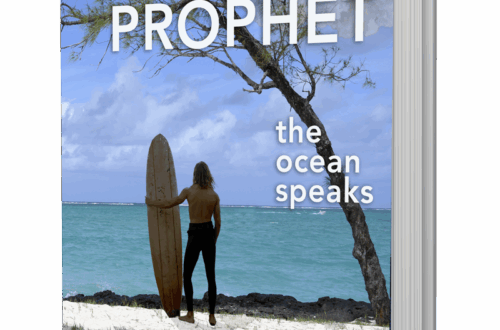I went to Sunday school as a child steeped in Enid Blyton and Alfred Hitchcock, and found the language of the Bible musty and impenetrable, and the narrative less convincing than The Lion, the Witch and the Wardrobe. Sunday School was more about giving my parents a couple of hours respite than any attempt at religious learning, so far as I could tell. But I can still recite the order of the testaments.
According to accepted Christian thought our earth is no more than 6,000 years old. This conclusion originated with James Ussher, a 17th century Irish Archbishop who counted up estimates of the ages of Abraham’s family listed in the Old Testament and calculated that creation began (on the Julian calendar) on Saturday, October 22, 4004 BC, at 6 pm. Just before tea-time.
Scientific analysis arrives at a different conclusion.The Earth formed a persistent solid surface 4.54 billion years ago and life appeared around 3.8 billion years ago. This is formulated on evidence from radiometric age-dating of meteorite material and is consistent with the radiometric ages of the oldest-known terrestrial material and lunar samples. It makes no use of ancient testaments whose provenance is questionable. It doesn’t mention a specific time of day for Genesis either.
All of this is humbling for a human.
Dinosaurs became extinct 66 million years ago after 230 million years of roaming the earth. Nobody thought to create an ark to salvage a mating pair. To put that in perspective the earliest humans emerged 300,000 years ago—in Africa and not in Great Britain which at that time was no more than a peninsula joined to Europe by land-links rather than Maastricht.
If God created life in his own image, you would have imagined he would be more likely to resemble a T-Rex. than a homo-sapien.
Having faith is not sufficient reason to overlook verifiable scientific truths. There are many mysteries on earth, but the origin of species is probably not one of them.
Added to which, if a God exists then why would it be so cruel? I was a creative child and constructed wonderful manifestations from Lego, Mecanno and any number of materials. I never thought of destroying these, or torturing these creations or giving them impossible trials, just as I would never think of inflicting pain on our labrador pet. Or starving it. Or depriving it of clean water.
I respect people’s various religions in the same way as I respect their favourite colours—it’s not for me to tell anyone that blue is nicer than red. I won’t try. I also don’t decry any flavour of religion: muslim, judaism, buddhism, christianity—it’s all the same to me.
In fact, in spite of everything, I don’t classify myself as an atheist. I remain an agnostic. I’m waiting for some galactic proof. I’m waiting for a miracle.







Echoes the words of Dawkins, Dennet, Harris, Hitchens & Fry, but difficult to find anything new to say, or any new interpretations, of the ‘old lies’. I find the Old Testament interesting in the same way as I do Tolkien’s stories, but don’t believe them either. New Testament is a mash-up of stories/accounts from numerous sources, none of them contemporaneous with the (possible) existence of a (composite?) figure known as the Christ. I too class myself as agnostic rather than atheist or anti-theist , but only because my science background prohibits me from dismissing a theory or conjecture without significant evidence, something that I tend to accuse those with strong religious views of doing. As for cruelty, if god is is able to stop cruelty but chooses not to, then it is a cruel god – if it cannot end cruelty then claims of omnipotence are false – either way, I can do without a god.
Succinctly put!
It is crucial to distinguish between organised religion, and mankind’s innate longing for the numinous experience of the Metaphysical – spirituality. The former have shamelessly co-opted the latter for the purposes of social control. The error that Dawkins & co. make is to attack the straw man of organised religions and conclude that there’s nothing to the universe other than matter.
Scientific rationalism, based on materialistic reductionism, is coming to a dead end. Science has literally no clue as to what makes up 95% of the known universe – dark matter and dark energy are merely mathematical constructs to explain away phenomena that otherwise cannot be explained. Cosmology is in a hole – string theory, multiverse theory, squaring quantum mechanics with Einsteinian relativity – no, science is no more the answer than is Christianity or Islam. This is not to negate scientific progress, which has brought mankind vast benefits, but which is also threatening our planet with climate change.
Humanity needs to square science with spirituality. Above all, this means understanding consciousness. I am coming round to the conclusion that consciousness is the fundamental property of the universe, not merely an emergent epiphenomenon of biological evolution. First came consciousness – then came spacetime and matter.
Thanks – thought provoking contribution
Thought provoking stuff Paul. You might identify as agnostic because while you acknowledge the possibility of a higher power or God, you also recognise the inherent uncertainty in the question of God’s existence. Your agnosticism reflects your humility in the face of the profound mysteries of the universe, leaving room for the belief that there could be a God while also embracing the uncertainty that surrounds this profound question.
It’s important to note that people’s beliefs about suffering and God can vary widely, and different religions and belief systems offer their own interpretations and answers to this question. Ultimately, the question of why suffering exists in a world with the possibility of a benevolent God is a deeply personal and philosophical one, and individuals may arrive at different conclusions based on their beliefs and experiences.